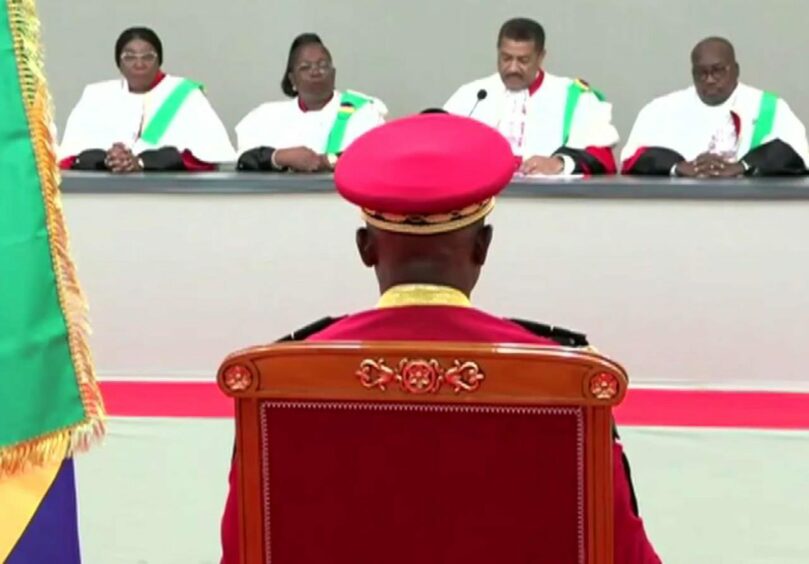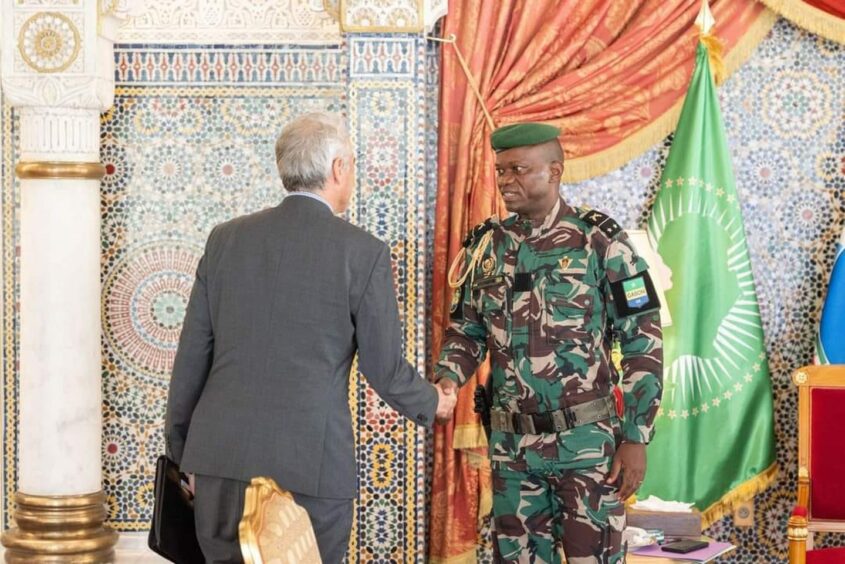
Brice Oligui Nguema has been sworn in as Gabon’s new transitional president this morning, with borders reopening and oil exports resuming.
The general seized power last week in a coup, on August 30. The military took control of media stations and put President Ali Bongo under house arrest.
As the security forces took control of the country, they ordered borders and ports to shutter. This triggered a drop off in oil loadings, according to OilX’s Florian Thaler.
Oil producers in the country have said there was no impact on operations. The country produces just over 200,000 barrels per day.
“We also think loadings have restarted,” Thaler said. OilX, part of Energy Aspects, did not detect any changes in oil production, based on its flaring analysis.
EOS Risk confirmed disruption in an update on September 1. The security consultancy said “at least 30 ships” had dropped anchor in Gabonese waters since August 30. The Libreville port authority is advising vessels to await instructions, EOS said.
It reported three ships at Owendo port, including one tanker. Such a gathering of stationary vessels provides a tempting target for pirates, EOS said.
The military authorities reopened borders and ports on September 2, France24 reported.
Mixed reception
A number of countries have called for the new government.
France condemned the coup and is monitoring the situation. “We reaffirm our commitment to democracy and particularly to free and transparent elections,” Paris said.
Despite this, Nguema met France’s ambassador to Gabon, Alexis Lameck, shortly after seizing power. France’s Eramet, a mining company, halted operations amid the coup but was swift to resume operations subsequently.
The African Union also came out against the coup as a means of “resolving its post-election crisis”.
Nguema served President Bongo and his father, the previous president. OCCRP reported, in 2020, that Nguema had bought three houses in the US for just over $1 million in cash.

 © Supplied by Gabon
© Supplied by Gabon